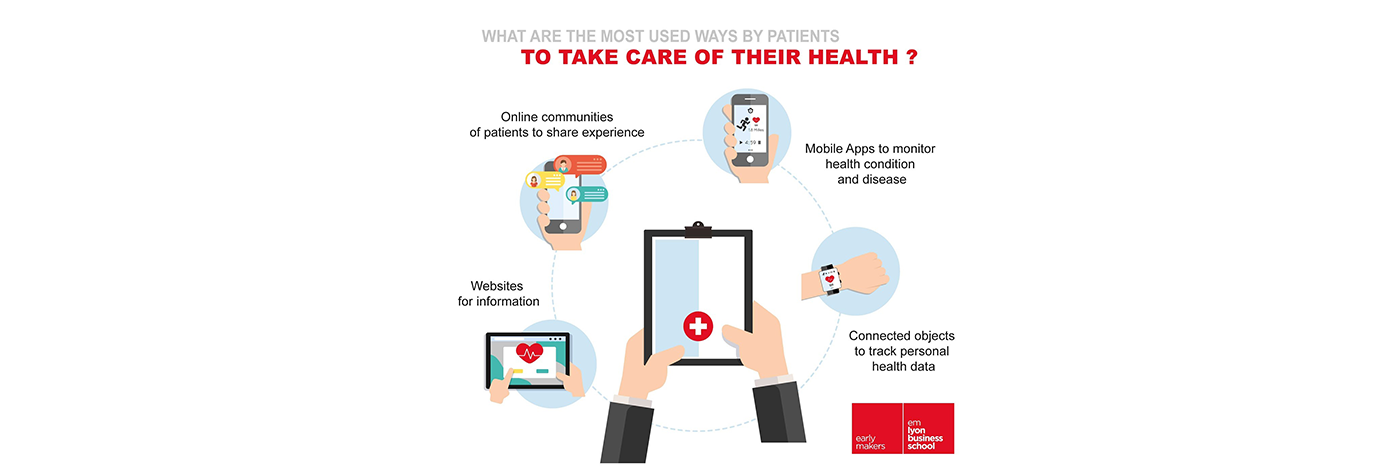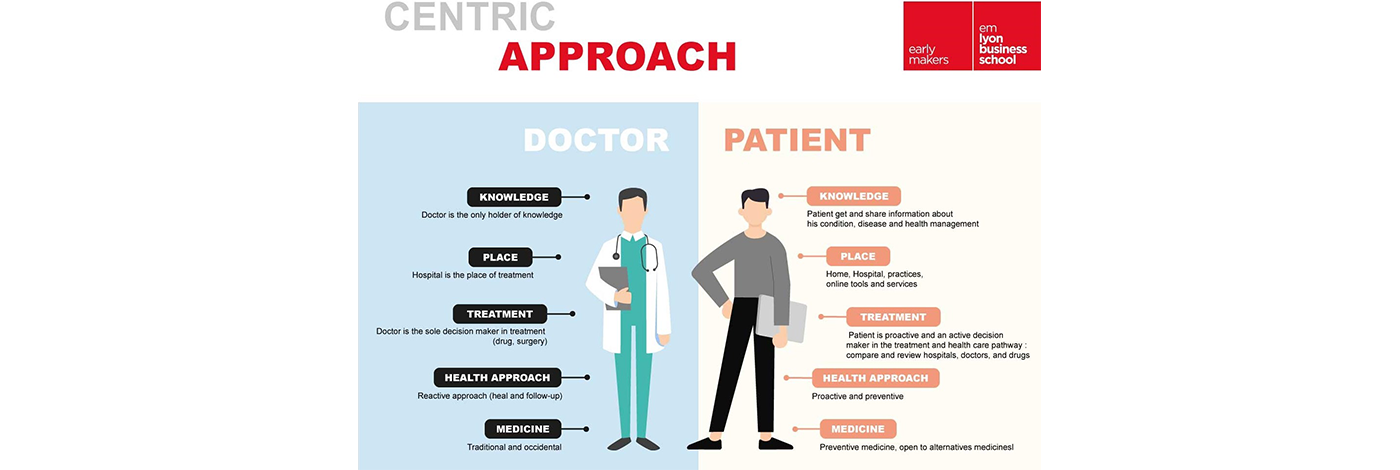The acceleration of digital transformation in healthcare has allowed patients to take over their health and any follow-up procedure. Access to information is no longer reserved for professionals, as social media, mobility, IoT and big Data have influenced -and changed- the perspectives and behaviors of patients, making them actors of their own health.
From a doctor-centric Model to a patient-centric model
A few decades ago, patients were totally dependent on doctors’ diagnoses and treatments.
Patient were often merely considered just as “tags” or “files”. Doctors and hospitals were in a position of authority with regard to the patients.
With the development of health information on the web, however, patients have gradually discovered that they could access very precise information on their conditions, diseases or medical issues.
In fact, numerous websites have developed information for patients. Moreover, online resources for health professionals (e.g., National Center for Biotechnology Information) have become increasingly essential for and partially accessible to non-professionals.
Doctors therefore have had to challenge themselves to handle patients who are sometimes as well informed as they are on a disease. Some patients have even become true experts of their illnesses and health conditions.
Another trend in this information revolution is the new possibility for patients to share their experience with other patients through online health forum.

A useful example of this evolution is the WebMD Symptom Checker. This website can identify an individual’s possible disorders and symptom-related treatments.
The rise of patient empowerment
Health has gradually evolved into an issue that is no longer addressed in a certain place (the hospital) at a defined time (period when a doctor diagnoses a disease). People nowadays have empowered themselves to take charge of their own health and well-being and have recognized health as a building block of everyday life.
This trend echoes Asian medicine, which focuses on disease prevention with a healthy lifestyle (i.e. regular exercise, proper nutrition, and constant meditation…).

When medtech accelerates the patient centric model
Patients are no longer mere spectators of their own health. Instead, they get involved, equip themself, and learn about and share their health issues.
This evolution of patients’ behaviors and attitudes creates new opportunities for the health industry.
Google, Apple, Facebook and Amazon, otherwise known as “GAFA”, are evidently aimed at this market. For instance, Google provides Google Fit service, a health-tracking platform for the Android operating system and Wear OS. Meanwhile, Apple offers ResearchKit project, an open source framework for apps that allows researchers and developers to gather meaningful data, and Healthkit, which provides a central repository for health and fitness data on the iPhone and Apple Watch.
Aside from GAFA, there are also others players in the market, which mainly come from the world of new technologies and digital media. Compared to the traditional firms, these new players apply a user-centric approach, designing products in an agile mode and offering robust IT solutions.
Livongo, a Mountain View, California-based company, is an exemplar and proponent of the application of the new patient-centric model. It developed Livongo for Diabetes – a collection of connected devices that enable people with diabetes to interact with a virtual care team.
Another perfect example that illustrates this health management revolution is the iWatch from Apple. The iWatch allows patients to activate an ECG app when they experience symptoms such as rapid or skipped heartbeats. This information can provide doctors with invaluable insights into the iWatch wearers’ conditions.
Health Industry needs experts in Health Management & Data Intelligence who are able to have a patient centric approach and a mindset that allows to understand changes in Health ecosystem.
The MSc in Health Management & Data Intelligence teaches you powerful methodologies to manage innovative and collaborative projects, provide you with solid knowledge and agility when it comes to digital technologies: data, IoT, artificial intelligence and focus on ownership of the challenges of this ecosystem and its various stakeholders.


